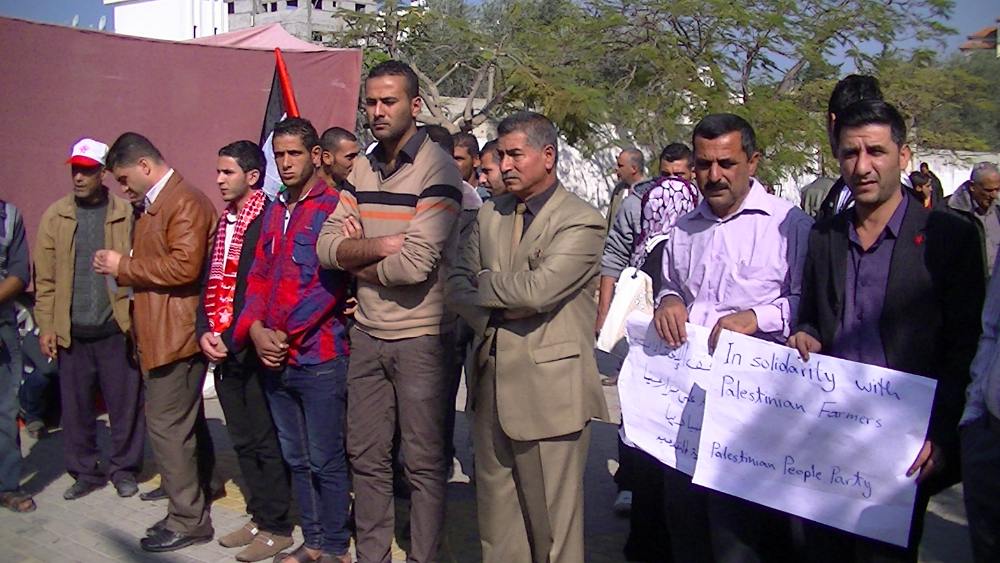Tag: Farmers
-
Palestinian child wounded by Israeli gunfire while harvesting potatoes in Gaza
17th December 2013 | International Solidarity Movement, Rosa Schiano | Gaza, Occupied Palestine On Sunday, 15th December, a young Palestinian was injured by Israeli gunfire in Beit Lahia in the northern Gaza Strip. Mohammed el-Shanbary, age 17, was harvesting potatoes. “I went to work at 9 am,” el-Shanbary said. “After about 30 minutes, the soldiers…
-
Gazan farmers and fisherfolk call for food sovereignty and an end to Israeli attacks
20th November 2013 | Corporate Watch, Tom Anderson and Therezia Cooper | Gaza, Occupied Palestine On 20th November 2013, hundreds of farmers and fisherfolk gathered outside the United Nations Special Coordinator for the Middle East (UNSCO) in Gaza City to demand that the international community take action to prevent the Israeli military’s attacks against them and to…
-
Palestinian farmer injured by Israeli gunfire in the Gaza Strip
16th November 2013 | International Solidarity Movement, Rosa Schiano | Gaza, Occupied Palestine On Wednesday, 13th November, gunfire by Israeli occupation forces injured a Palestinian farmer near al-Maghazi refugee camp, in the center of Gaza strip. Mneifi Abu Abdullah, age 25, was working with three other farmers about 600 meters from the separation barrier. Abu…



